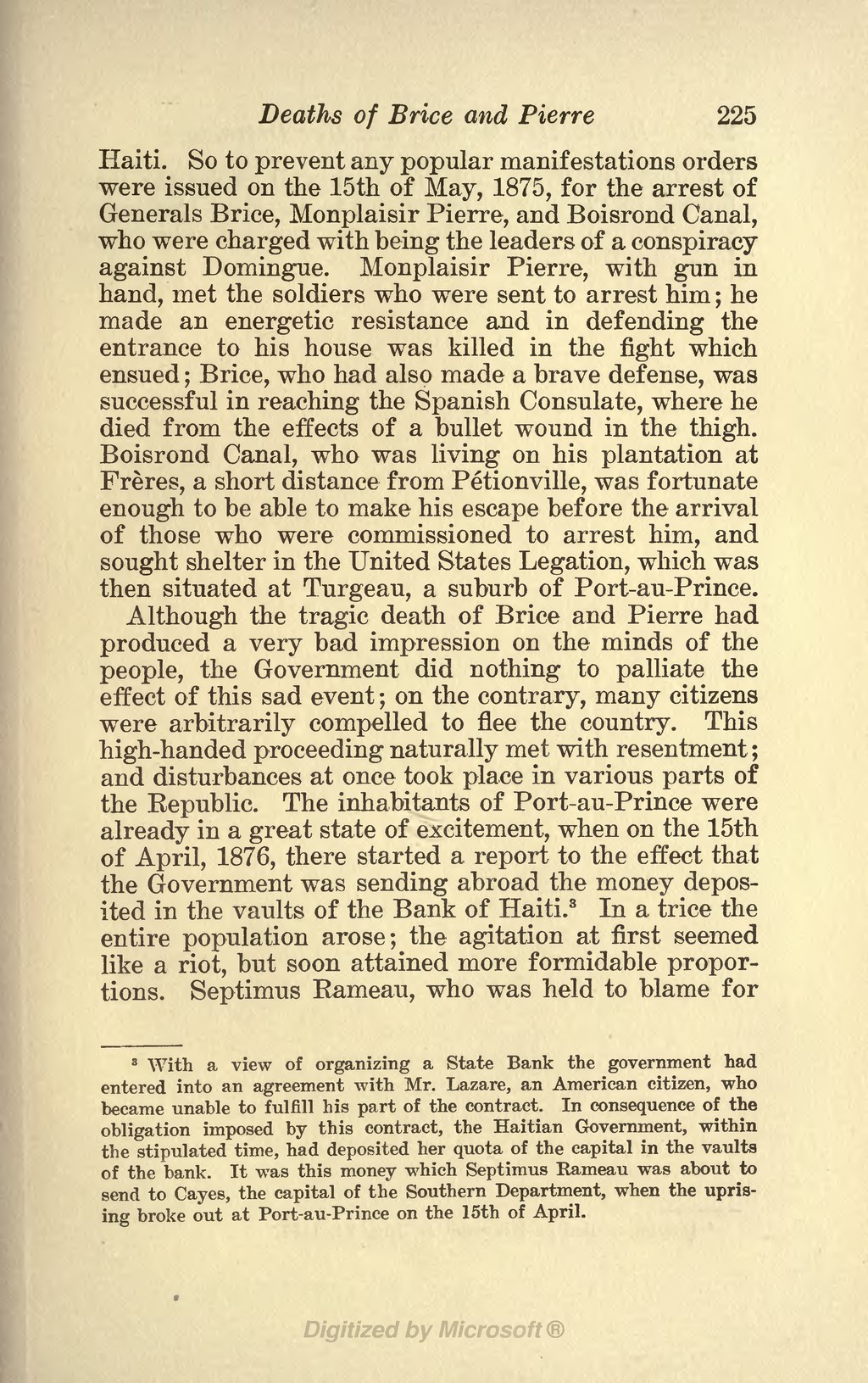Haiti. So to prevent any popular manifestations orders were issued on the 15th of May, 1875, for the arrest of Generals Brice, Monplaisir Pierre, and Boisrond Canal, who were charged with being the leaders of a conspiracy against Domingue. Monplaisir Pierre, with gun in hand, met the soldiers who were sent to arrest him; he made an energetic resistance and in defending the entrance to his house was killed in the fight which ensued; Brice, who had also made a brave defense, was successful in reaching the Spanish Consulate, where he died from the effects of a bullet wound in the thigh. Boisrond Canal, who was living on his plantation at Frères, a short distance from Pétionville, was fortunate enough to be able to make his escape before the arrival of those who were commissioned to arrest him, and sought shelter in the United States Legation, which was then situated at Turgeau, a suburb of Port-au-Prince.
Although the tragic death of Brice and Pierre had produced a very bad impression on the minds of the people, the Government did nothing to palliate the effect of this sad event; on the contrary, many citizens were arbitrarily compelled to flee the country. This high-handed proceeding naturally met with resentment; and disturbances at once took place in various parts of the Republic. The inhabitants of Port-au-Prince were already in a great state of excitement, when on the 15th of April, 1876, there started a report to the effect that the Government was sending abroad the money deposited in the vaults of the Bank of Haiti.[1] In a trice the entire population arose; the agitation at first seemed like a riot, but soon attained more formidable proportions. Septimus Rameau, who was held to blame for
- ↑ With a view of organizing a State Bank the government had entered into an agreement with Mr. Lazare, an American citizen, who became unable to fulfill his part of the contract. In consequence of the obligation imposed by this contract, the Haitian Government, within the stipulated time, had deposited her quota of the capital in the vaults of the bank. It was this money which Septimus Rameau was about to send to Cayes, the capital of the Southern Department, when the uprising broke out at Port-au-Prince on the 15th of April.
